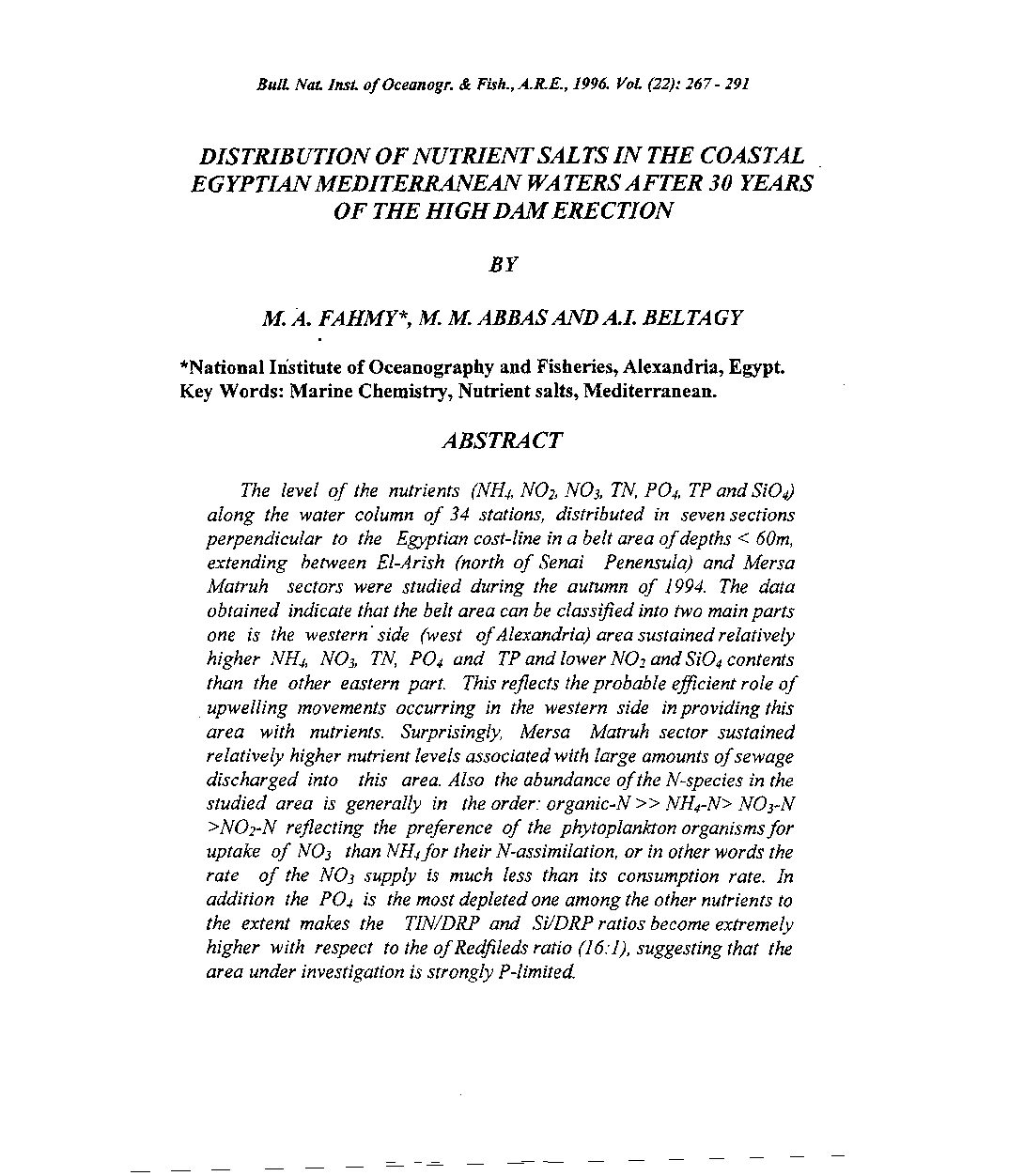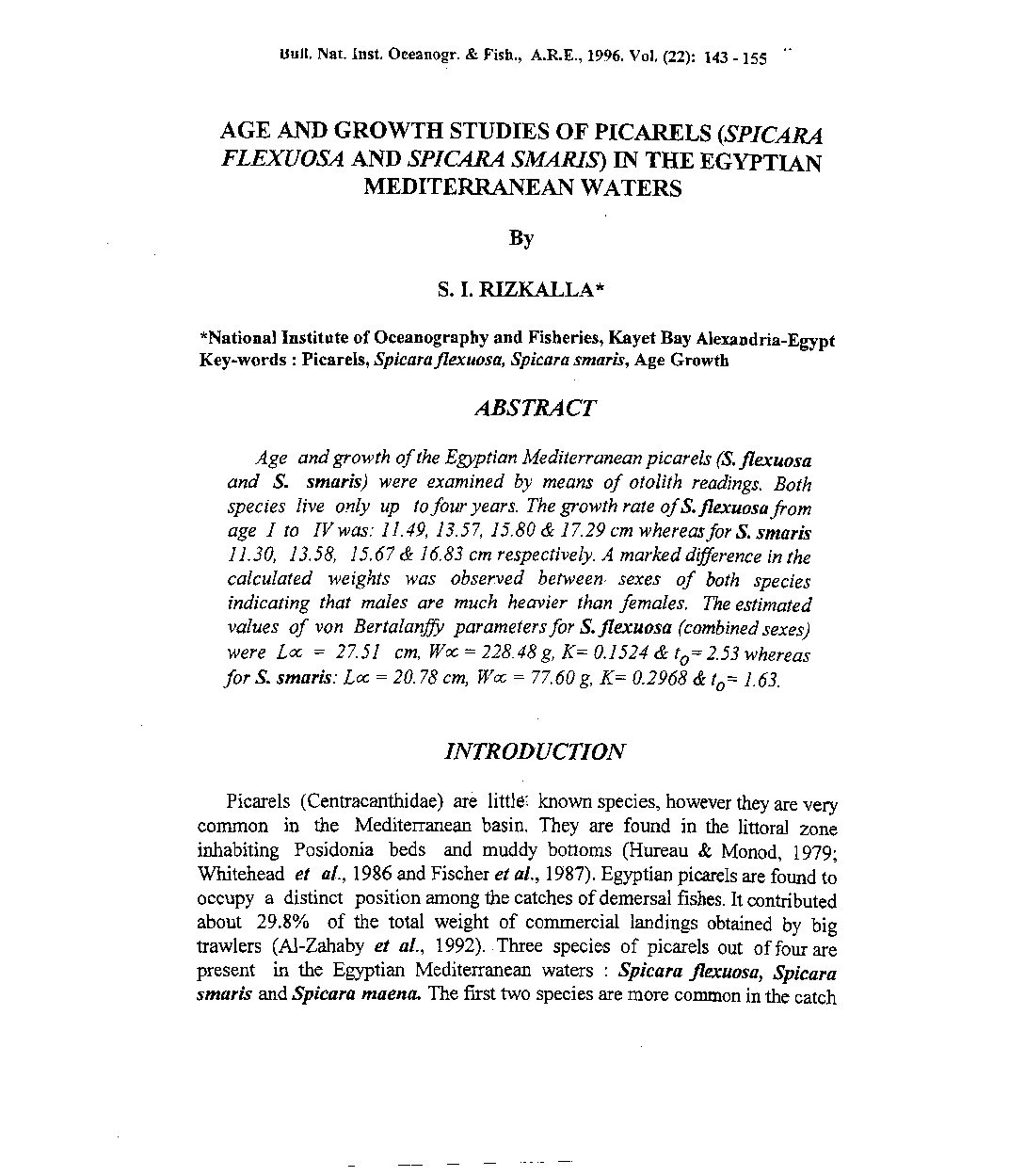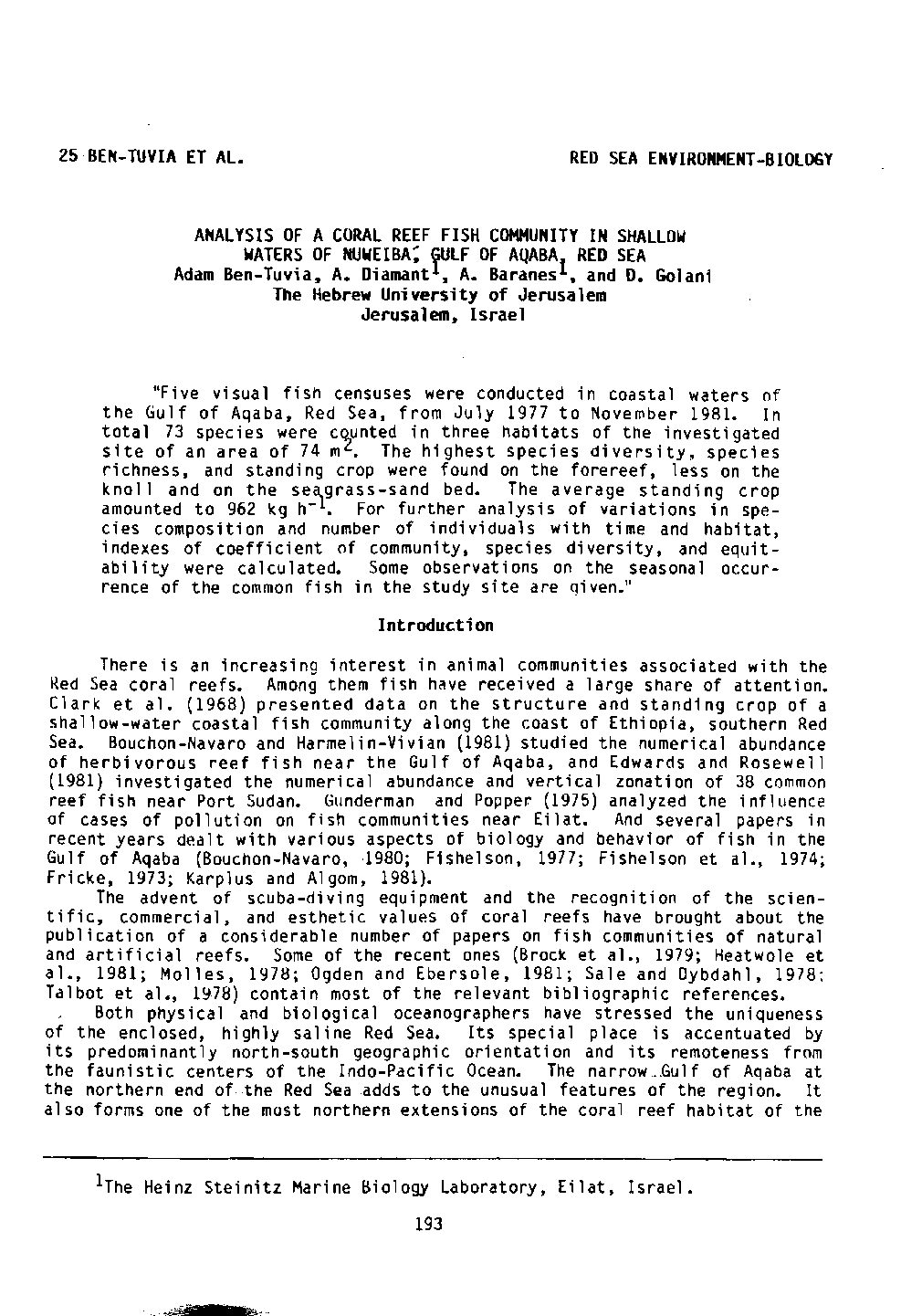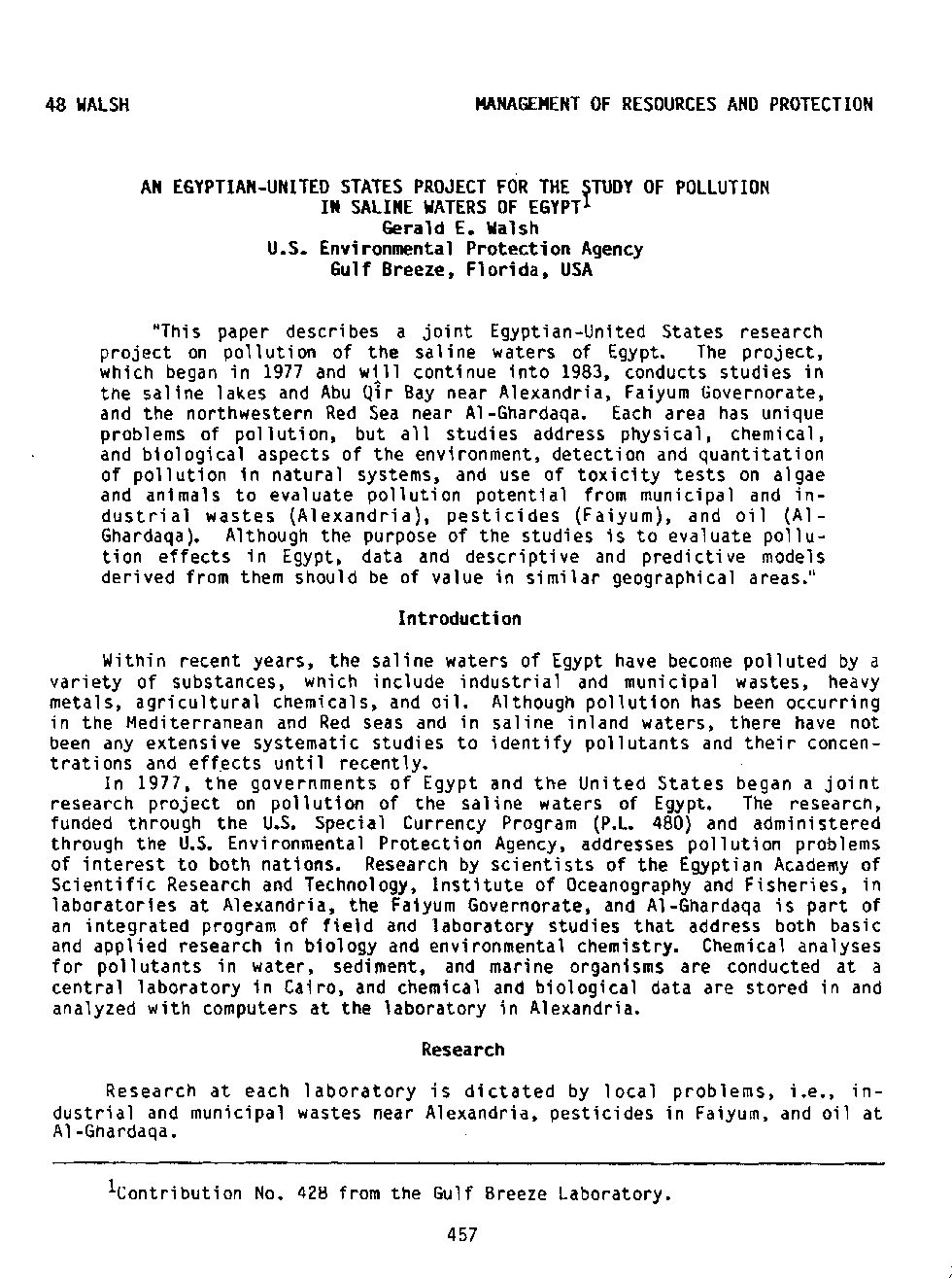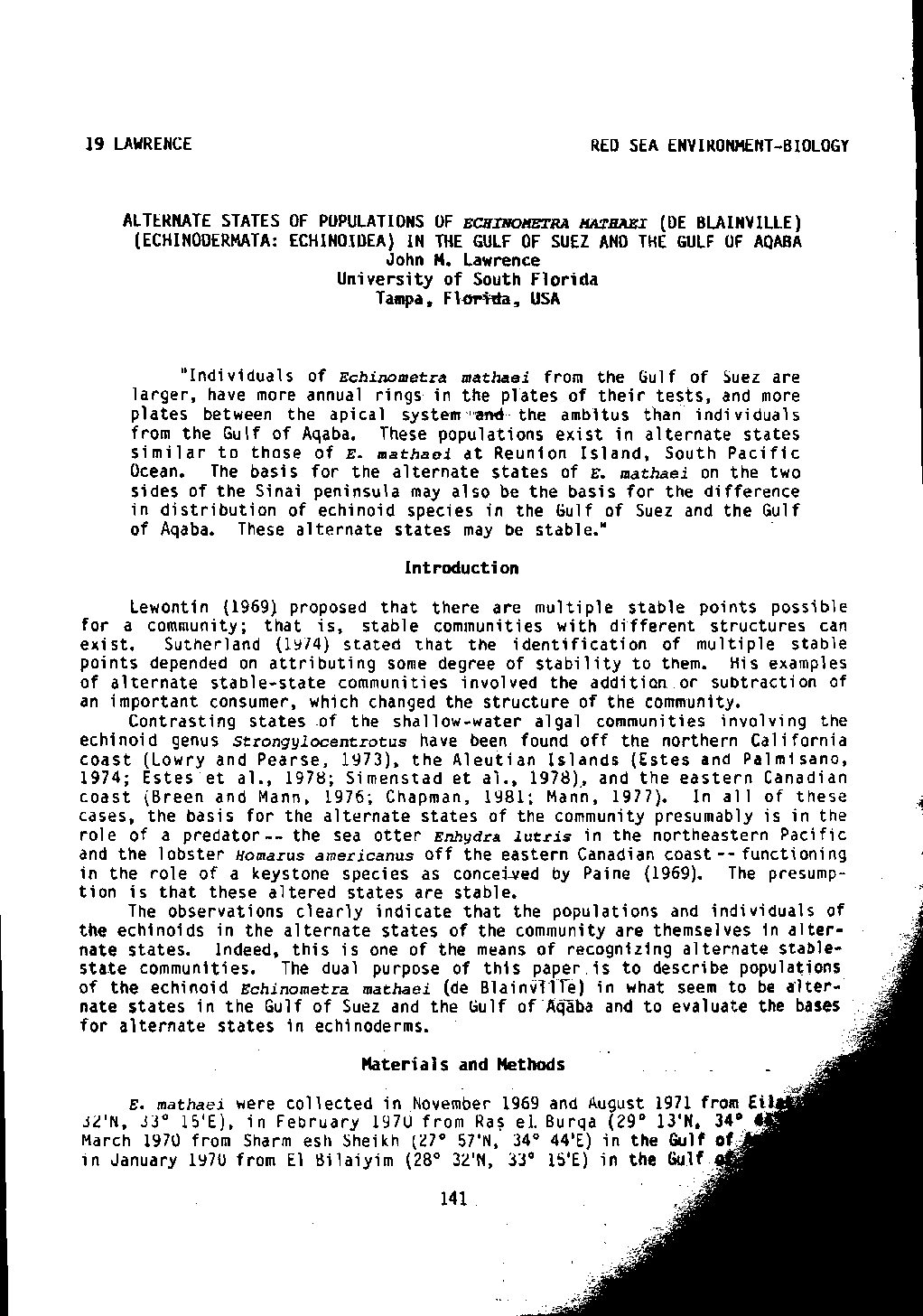Categories
vol-22DISTRIBUTION OFNUTRIENTSALTS IN THE COASTAL
EGYPTIAN MEDITERRANEAN WATERS AFTER 30 YEARS
OF THE HIGH DAM ERECTION
BY
M. A. FAHMY*, M. M. ABBASAND A.I. BELTAGY
*National Institute of Oceanography and Fisheries, Alexandria, Egypt.
Key Words: Marine Chemistry, Nutrient salts, Mediterranean.
ABSTRACT
The level of the nutrients (NH.j, N02, NOj , TN, P04, TP and Si04)
along the water column of 34 stations, distributed in seven sections
perpendicular to the Egyptian cost-line in a belt area ofdepths < 60m,
extending between EI-Arish (north of Senai Penensula) and Mersa
Matruh sectors were studied during the autumn of 1994. The data
obtained indicate that the belt area can be classified into two main parts
one is the western' side (west ofAlexandria) area sustained relatively
higher NH.j, NOj, TN, P04 and TP and lower N02 and Si04 contents
than the other eastern part. This reflects the probable efficient role of
upwelling movements occurring in the western side in providing this
area with nutrients. Surprisingly, Mersa Matruh sector sustained
relatively higher nutrient levels associated with large amounts ofsewage
discharged into this area. Also the abundance ofthe N-species in the
studied area is generally in the order: organic-N >> NH4-N> NOj-N
>N02-N reflecting the preference of the phytoplankton organisms for
uptake of NOj than NH4 for their N-assimilation, or in other words the
rate of the NOj supply is much less than its consumption rate. In
addition the PO.j is the most depleted one among the other nutrients to
the extent makes the TIN/DRP and SilDRP ratios become extremely
higher with respect to the ofRedfileds ratio (16:1), suggesting that the
area under investigation is strongly P-limited
